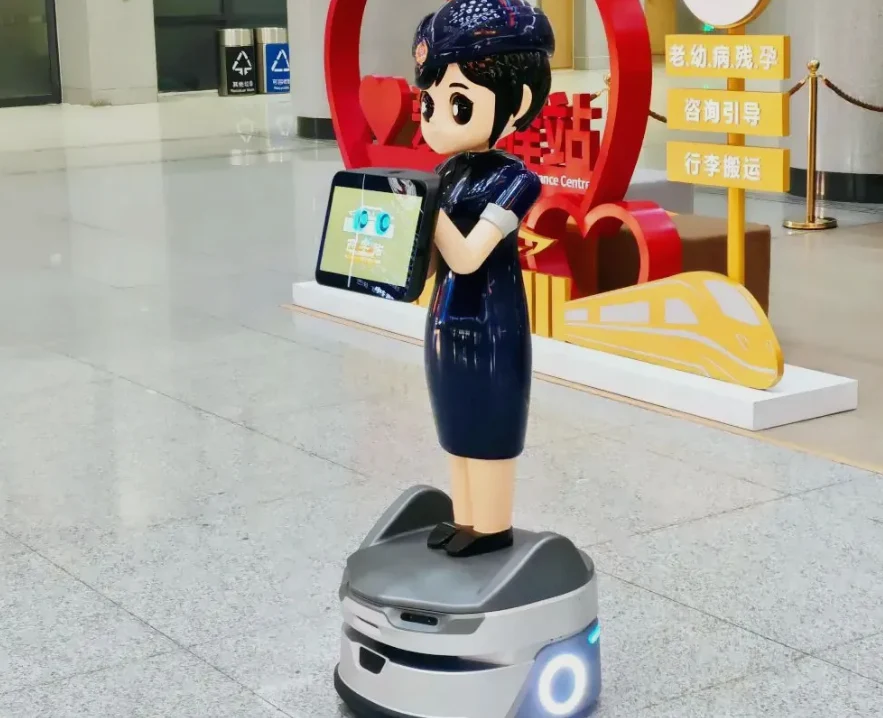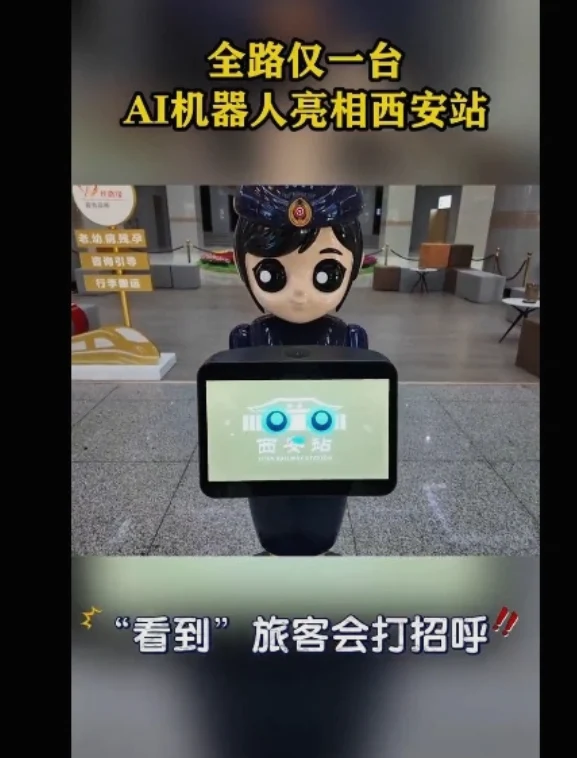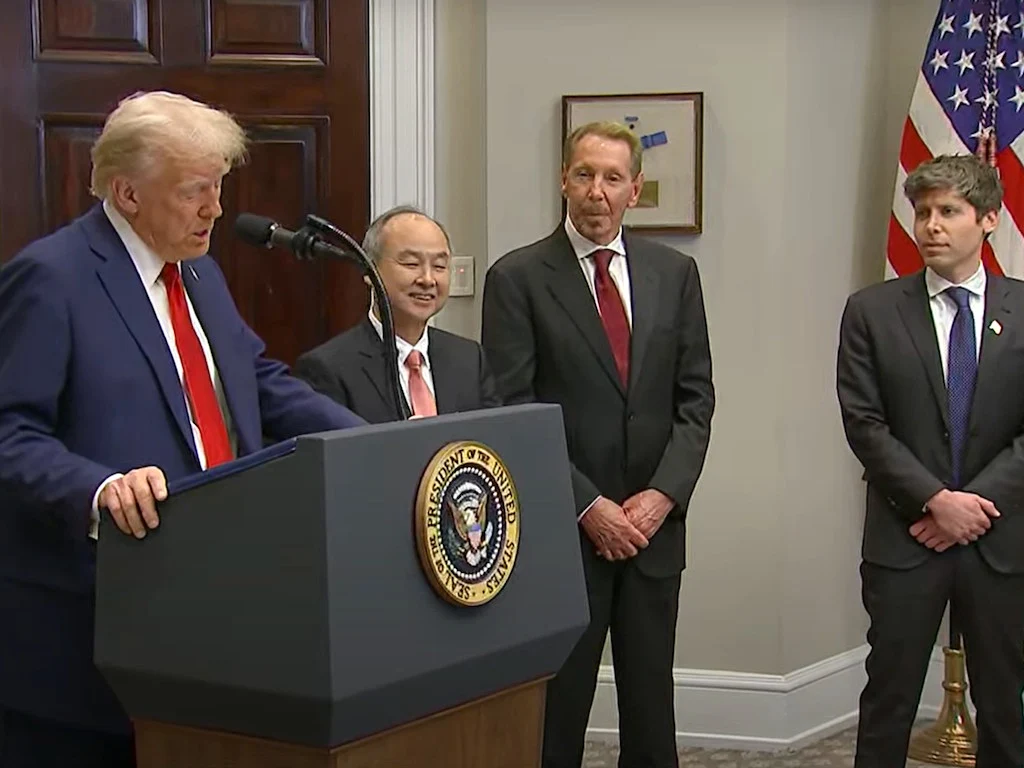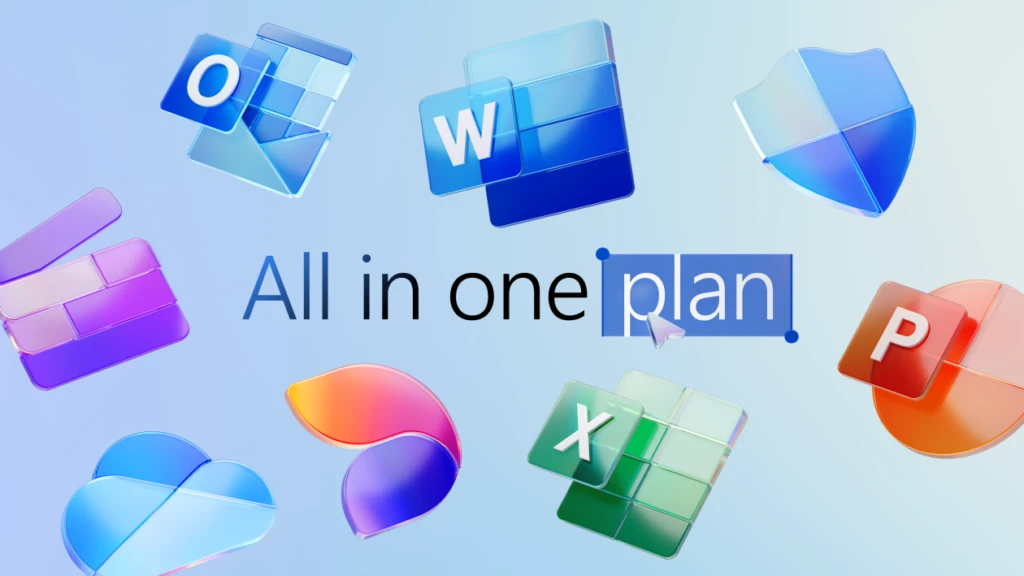China is making important progress in the field of artificial intelligence and robotics. The latest addition is ‘Xiaotie’, the nation’s first humanoid AI robot designed for passenger service within the railway system. Developed by the China Railway Xi’an Bureau Group Co., Ltd., Xiaotie has officially begun its role at the Xi’an Railway Station, ushering in a new chapter in travel assistance. Its launch comes just in time for the Spring Festival travel surge, offering much-needed help during one of the busiest periods for travel in China.
A Friendly Bot at the Station
Xiaotie stands at a height of 1.5 meters and is modeled after a cute railway passenger attendant, featuring short hair, large eyes, and a railway uniform. Its inviting look is enhanced by its ability to navigate the station on a balance bike. Xiaotie provides consulting, guiding, and navigation help to passengers, making it a handy partner for those on the go. With cutting-edge AI large model technology, this robot interacts effortlessly with travelers and uses a tablet to show synchronized responses. It can even escort passengers to their desired locations within the station.
Operational Efficiency
Everyday, Xiaotie works from 8:00 AM to 8:00 PM, providing reliable support to travelers. When its battery is low, it automatically goes to find a charging station, showing that it’s quite self-sufficient. There are future plans to place Xiaotie at ticket gates to assist with duties such as ticket checking, which would further increase its usefulness within the railway system. Its design is protected by patents, ensuring it remains unique in this area.
AI Robot Advancements in China
The launch of Xiaotie is indicative of China’s wider strategy to weave AI and robotics into many different industries. For instance, AI-enhanced builders are transforming high-speed railway construction by speeding up project completion, boosting safety, and optimizing resources. These advancements are positioning China as a global frontrunner in AI-driven infrastructure efforts.
Importance of ‘Xiaotie‘
Right now, Xiaotie stands as the sole humanoid AI passenger service robot in China’s railway network, marking a significant technological milestone. Its existence not only improves the travel experience for passengers but also highlights China’s dedication to innovation. With ongoing improvements in AI, robots like Xiaotie might soon become essential in the travel industry, leading to a smarter and more efficient future.












